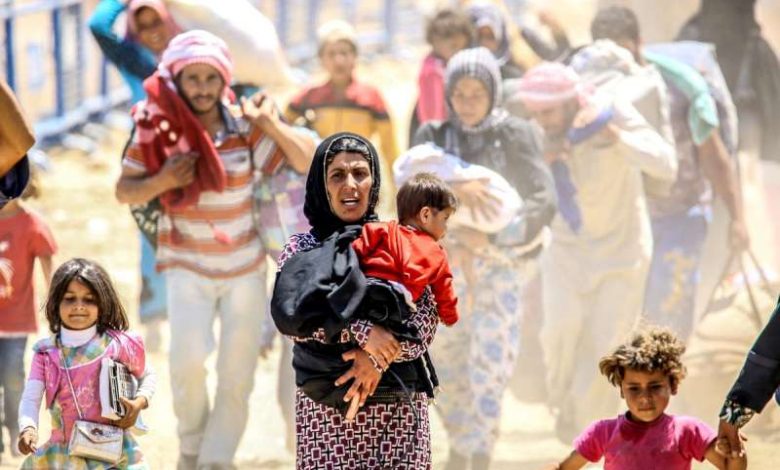The Syrian people are living in a deepening economic crisis

Syrian students can no longer attend universities and schools, as a severe fuel shortage is hampering the capital Damascus, prompting residents to seek alternatives to heating and shut down businesses.
“Our struggle for fuel starts at home and doesn’t end in the classroom,” said Ezz, a 20-year-old Syrian student studying literature at the University of Damascus. “At home it is very cold without heating, and on the street it is not easy to find transport.”
Traditional Solutions
The price of heating fuel exceeds the capacity of Syrian families, so Syrian families resort to traditional solutions using other layers of blankets to keep warm. Syria blames the lack of fuel on Western sanctions that severely restrict imports. The country’s main oil fields are located in areas outside the government’s control. There are now almost no major rush hour traffic jams in Damascus, where many motorists leave their cars, and public buses are scarce, overcrowded, and taxis expensive.
Universities are cutting classes to three days a week because of the fuel crisis, Ezz said: “People are only thinking about how to keep warm during the winter, how can I even think about university and study in this case?””.
A difficult life
According to the US website, daily life has become more difficult in recent weeks in Damascus, where severe electricity rationing means residents get only two hours of state power a day. Some people choose to burn peanut skins or leftovers of compressed olives for heating, and taxi drivers have grown accustomed to buying fuel at subsidized prices once a week, but this has now dropped to once a month, prompting many to go to the black market for fuel supplies and hiking the price of taxis.
“After subsidized fuel has disappeared, I only work for two days,” said taxi driver Bassam al-Zahrawi, adding that he no longer walks the streets of Damascus, but waits for people to call him for a fare. “In the past, we looked for customers, but now they are looking for us. What we see now is the most difficult crisis,” the 39-year-old said.
According to the US website, the civil war in Syria has caused the death of nearly half a million people since its outbreak in 2011, which led to the fragmentation of the country and the destruction of its economy and infrastructure. The UN says that 90% of the population now lives below the poverty line and 12.4 million people are suffering from food insecurity.
“Half of the bakeries in the capital have stopped working due to the shortage,” Bassam Kalji, the head of the Bakers Association, told a local radio station last week, while Abu Mohammed, 25, said he had resorted to firewood to keep his bakery operating in Damascus. “The crisis has been going on for months, but I never expected that I would be able to find a liter of fuel oil,” he said.












